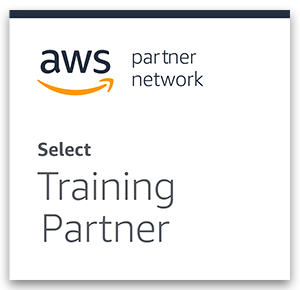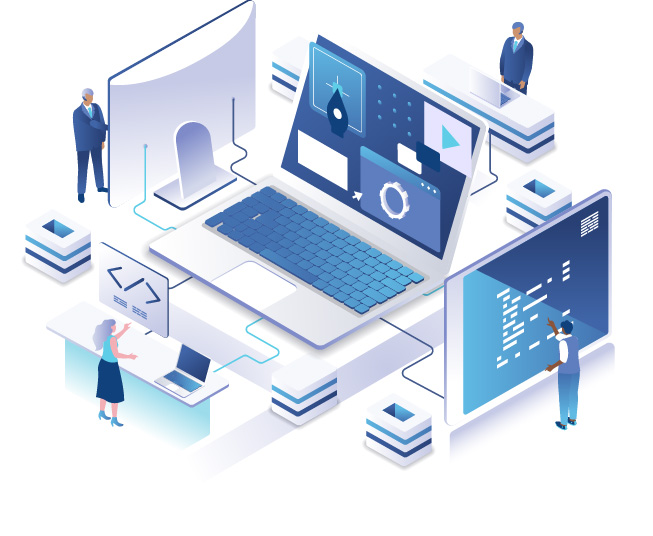title
Please take a moment to fill out this form. We will get back to you as soon as possible.
All fields marked with an asterisk (*) are mandatory.
AWS Developer Learning Plan


Become an AWS Developer With Free Digital Training
Build your career with foundational courses from AWS. Our free digital library of Cloud Practitioner courses will teach you how to build cloud applications on AWS and prepare you for the AWS Certified Developer certification exam.
Start your AWS Developer training with any of the courses listed below.
Free AWS Developer Courses
Job Roles in the Cloud
This course provides business decision makers a high-level picture of job roles in the AWS Cloud and how they compare to on-premises IT job roles. Learners explore four cloud job roles and their competencies to understand how to best transition on-premises job roles to cloud job roles.
- Course Level: Fundamental
- Duration: 30 minutes
Accelerating Messaging Modernization with Amazon MQ
This course is designed to help solution architects and developers who are looking to modernize their existing message-oriented middleware (MOM) or message broker architectures. You will learn the differences between traditional legacy architectures and modern messaging architectures. You will review several paths that customers may follow to modernize their messaging environments, including the benefits and costs of each approach. You will also be introduced to Amazon MQ and participate in several hands-on labs to better understand it. This fully managed message broker service uses industry-standard APIs and protocols (including JMS, NMS, AMQP, STOMP, MQTT, and WebSocket).
- Course Level: Fundamental
- Duration: 1 Hour 30 Minutes
Introduction to Containers
This is an introductory course designed for participants with little-to-no previous knowledge of containers. It will teach you the history and concepts behind containerization, provide an introduction to specific technologies used within the container ecosystem and discuss the importance of containers in microservice architectures.
- Course Level: Intermediate
- Duration: 15 Minutes
Deep Dive on AWS Fargate: Building Serverless Containers at Scale
Containers allow you to craft sophisticated cloud-native applications, but how do you manage scale? In this course you will learn how to better launch and manage your large-scale containerized workloads with AWS Fargate. Dmitriy Novikov will walk through the essentials of AWS Fargate to get the most out of your container deployment and management strategy.
- Course Level: Advanced
- Duration: 40 Minutes
Amazon Elastic Container Service (ECS) Primer
This course goes beyond the basic concepts and benefits of containerization and teaches you more about the Amazon Elastic Container Service (ECS). You will learn about the implementation of containers on AWS using ECS and complementary services, such as the Amazon Elastic Container Registry (ECR). You will also learn about common microservices scenarios.
- Course Level: Fundamental
- Duration: 30 Minutes
Amazon EKS Primer
In this course, you learn the basics of container management and orchestration for Kubernetes using Amazon EKS. You learn how Amazon EKS manages the Kubernetes control plane and parts of the data plane. You learn how Amazon EKS integrates with other AWS services, what the cost considerations are for Amazon EKS, and how to monitor applications running on Amazon EKS clusters.
- Course Level: Intermediate
- Duration: 1 Hour 15 Minutes
Introduction to Serverless Development
This course will orient you to key serverless concepts to help you start developing serverless applications. You will learn how development best practices you already use in server-based development apply to serverless development, and how to adjust your development processes for serverless application development.
- Course Level: Fundamental
- Duration: 25 Minutes
AWS Lambda Foundations
AWS Lambda is an event-driven, serverless compute service that lets you run code without provisioning or managing servers. This course focuses on what you need to start building Lambda functions and serverless applications. You learn how AWS Lambda works and how to write and configure Lambda functions. You explore deployment and testing considerations and finally end with a discussion on monitoring and troubleshooting Lambda functions.
- Course Level: Fundamental
- Duration: 2 Hours
Build and Deploy APIs with a Serverless CI/CD
Building an API engine, managing a CI/CD pipeline: achieving these DevOps goals historically took managing a number of instances with all the associated operational overhead. Atul Bargaje and Rahul Sareen, AWS IoT Architects, guide you through the process of simplifying your DevOps processes using serverless methods. You'll start by understanding how APIs are currently managed with traditional methods, then learn the real-world, best practices of how serverless application methods (SAM) can streamline your operations.
- Course Level: Fundamental
- Duration: 50 Minutes
AWS Shared Responsibility Model
This course is an introduction to the AWS Shared Responsibility Model. AWS and the customer share responsibility for security and compliance, and this course helps clarify the division of those responsibilities. From the physical components of your stack all the way up to user data, we define what you are responsible for in terms of securing your application, and what AWS is responsible for.
- Course Level: Foundational
- Duration: 5 Minutes
Getting Started with AWS Systems Manager
AWS Systems Manager is a secure end-to-end management solution for hybrid cloud environments. It helps to simplify resource and application management and shortens the time it takes to detect and resolve operational problems. This Getting Started course provides an overview of the core features and functionality of Systems Manager to help give you an introductory understanding of the services it provides.
- Course Level: Fundamental
- Duration: 1 Hour
Getting Started with AWS CloudFormation
AWS CloudFormation gives you a way to model a collection of related AWS and third-party resources, provision them quickly and consistently, and manage them throughout their lifecycles. In this Getting Started course, you will learn the basics of CloudFormation and how to use it to manage your infrastructure.
- Course Level: Fundamental
- Duration: 20 minutes
AWS Compute Services Overview
Compute services are the backbone that power most web-based applications. They are the foundation on which many Amazon Web Services (AWS) offerings are built. This course provides a high-level overview of the three main categories of compute services on AWS:
•Amazon Elastic Compute Cloud (Amazon EC2)
•Containers, which include Amazon Elastic Container Service (Amazon ECS) and Amazon Elastic Kubernetes Service (Amazon EKS)
•Serverless (AWS Lambda) This course includes a use case scenario to help you learn how to differentiate between the different compute options and how to select the best compute option for a given workload.
- Course Level: Foundational
- Duration: 40 minutes
Free AWS Developer Exam Prep
Exam Readiness: AWS Certified Developer - Associate (Digital)
The AWS Certified Developer - Associate exam validates technical expertise in developing and maintaining applications on the AWS platform. Learn how to prepare for the exam by exploring the exam's topic areas, mapping them to developing on AWS, and identifying specific areas to study. You will review sample exam questions in each topic area and learn how to interpret the concepts being tested so that you can better eliminate incorrect responses.
- Course Level: Advanced
- Duration: 2 Hours
Want to learn more about Authorized AWS Training and Certification?
Learn more about LearnQuest and how we can help you and your organization expand your AWS Cloud knowledge and skills with our authorized AWS training courses and certifications. Choose from topics including AWS Architecting, AWS Big Data, AWS Data Analytics and Cloud, AWS Developer, and more.
AWS Training and Certificationtitle
title
All fields marked with an asterisk (*) are mandatory.







